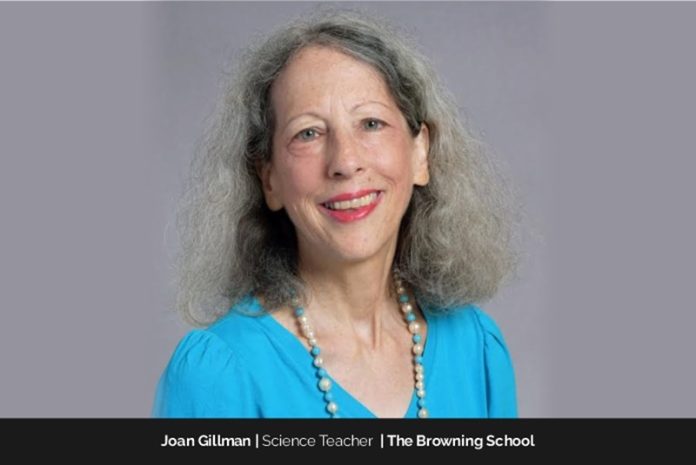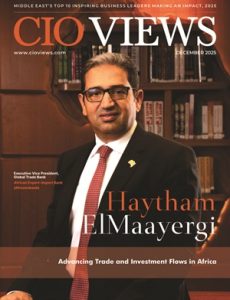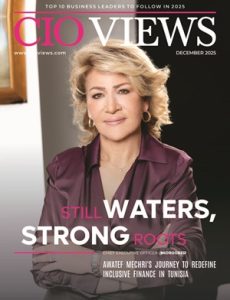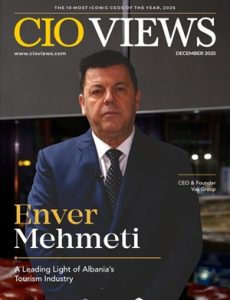Joan Gillman is a dedicated science teacher at The Browning School, where she passionately empowers students to become informed environmental stewards. With a strong commitment to sustainability and a belief in the transformative power of education, she integrates climate awareness into her curriculum while fostering compassion and collaboration among her students. Through innovative initiatives, like The Green Team, Joan educates and inspires the next generation to confront the pressing challenges facing our planet.
Fostering Inclusivity and Curiosity in Education
Joan’s passion for teaching began in high school through a community service program, where she taught recorder, tutored math, and organized games at a local elementary school. “Inclusiveness framed how I taught,” she said, stressing the importance of engaging every child. Her dedication impressed the school’s head, who valued her commitment to community-building.
Beyond the classroom, Joan taught swimming at the local JCC, including lessons for children with special needs, and even substituted as a ballet instructor. “Helping kids gain confidence in the water was incredibly rewarding,” she shared.
After earning a B.A. in Elementary Education from Felician University, Summa Cum Laude and an M.A. in Education for the Hearing Impaired from New York University, Joan began her career in the South Bronx, later teaching at various institutions in New York City and NJ. She also taught science to lower and middle school students as well as scinece and math electives at the Calhoun School.
Her interest in science and engineering started in childhood, experimenting with solutions, measuring snowfall, and building model cities with her brother. “Those early experiences shaped my approach to teaching,” Joan reflected, highlighting their impact on her career.
In her role as a sixth-grade advisor, Joan also supports students’ transition to middle school, fostering both their academic growth and personal development. “Seeing my students enter the room with a smile brings me such joy,” she says, reflecting her deep commitment to their success.
Fostering Growth and Change in Young Minds
The Browning School, an all-boys independent institution founded in 1888 in New York City, serves over 400 students in grades K-12. Committed to evidence-based educational practices, the school prioritizes ongoing professional development to keep educators current with evolving philosophies.
Its mission — “to create men of intellect and integrity to contribute meaningfully to our world” — is guided by four core values: Curiosity, Honesty, Dignity, and Purpose. These principles shape a curriculum that integrates equitable practices and social impact, celebrating boys’ unique strengths through research-driven strategies.
Joan, a dedicated science teacher at The Browning School, aims to inspire her students by highlighting women’s contributions to science. “When I was growing up, most science teachers were male,” she notes, recognizing the importance of representation. By being a positive female role model, she reinforces that women can make a significant impact in the field.
Inspiring Environmental Stewards for a Sustainable Future
Joan’s influence extends well beyond her science classroom. Since joining The Browning School in 2018, she has served as both a science teacher and one of the leaders of the Green Team, a school club dedicated to sustainability, where she spearheads sustainability efforts across the school.
Joan’s teaching philosophy centers around empowering students to become active participants in protecting the environment. Throughout her career, she has nurtured curiosity and helped students realize their potential to effect positive change. “I teach my kids that they’re powerful and can use their knowledge to make a difference,” she shares.
The Green Team organizes initiatives such as Central Park cleanups, fundraisers for disaster relief, and the “Green Action of the Week” campaign, all aimed at reducing the school’s carbon footprint. The team’s flagship event, Biodiversity Day, immerses students in hands-on workshops, guest speakers, and field trips, emphasizing the importance of environmental preservation.
Joan believes in empowering her students through community-based projects that develop leadership and collaboration skills. She encourages them to take part in conservation efforts, instilling a sense of responsibility for the planet’s future. Many of her students have gone on to become environmental advocates, driven by the lessons they learned under her guidance.
One particularly impactful lesson on global water shortages motivated a student to join the Green Team. Together, they researched clean water advocacy groups and raised over $1,000 for water.org, a testament to the passion and drive of the younger generation. “Planet Earth’s survival will depend on them,” Joan says, underscoring her belief in the critical role the next generation will play in addressing global environmental challenges.
Beyond extracurricular activities, Joan advocates for integrating climate change into the broader science curriculum. She emphasizes that “no science education is complete without addressing these issues,” reinforcing the importance of preparing students to confront real-world problems.
Through her work, Joan continues to inspire future leaders who will take on the pressing environmental issues of our time, ensuring that her legacy of education and advocacy lives on in the hearts and minds of her students.
Fostering Creativity Through Science and Music
Joan exemplifies creativity and organization, balancing her teaching responsibilities with her passion for music. She schedules time for lesson planning, grading, and practicing violin and piano, which she uses as an outlet to manage the stress of teaching. Joan plays violin with several orchestras including the Bergen Philharmonic Orchestra and the North Jersey Symphony during the Fall, Winter, and Spring. She also plays violin with The August Symphony Orchestra in the Summer.
“Playing music provides an important outlet for me,” she says, and it also enhances her teaching by helping her empathize with her students’ challenges. “When a piece of music needs extra practice, it reminds me of the challenges my students face when learning new topics.”
Joan brings hands-on learning to her science classes, adapting lessons to engage students across age groups. In her second-grade engineering unit, students design skyscrapers and bridges, integrating their cultural backgrounds. A highlight is “the elephant project,” where students build a bridge strong enough to support two adult elephants and a baby, blending science, math, and creativity with recycled materials.
She taps into students’ curiosity in her fourth-grade straw rocket unit, encouraging them to design rockets for maximum distance by experimenting with variables. “The learning doesn’t stop with the first trials,” she explains, as students refine their designs through trial and error.
For her sixth-grade class, Joan uses creative performances, such as rapping about natural disasters, to spark interest. Students then create safety rules and communicate their understanding through a medium of their choice, from PSAs to board games. “I don’t believe in a curriculum that is ‘one size fits all,” she asserts, allowing students to showcase their understanding in ways that nurture creativity and critical thinking.
A Lifelong Commitment to Learning in Education
With 43 years of teaching experience, Joan highlights the necessity of ongoing professional development. “So much has changed since I began teaching, and my career longevity is due to embracing new techniques through workshops and conferences,” she says. This commitment to continuous learning fuels her passion, enriches her classroom, strengthens her connections, and fosters collaboration with fellow educators.
Joan’s commitment to development is evident in her participation in workshops, including those at NASA’s Goddard Space Flight Center, where she observed the construction of the James Webb Telescope. She has also attended sessions on paleontology and climate change at the American Museum of Natural History and participated in the GLOBE Weather Field Test Program, testing a new meteorology curriculum.
In 1986, Joan faced the difficult task of discussing the Challenger disaster with her sixth-grade students. “How could I provide this information without frightening them?” she reflects, emphasizing the profound responsibility teachers carry and the importance of compassion in education.
In 2018, Joan became a National Geographic Certified Educator, learning storytelling and exploration techniques that enhance her teaching. For her Capstone project, she designed an oil spill simulation to help students grasp the challenges of environmental disasters. “They truly understand the horrors of oil spills after this experience,” she says. “It can be very difficult to clean up a model of an oil spill that uses vegetable oil on feathers, shells, and sand instead of petroleum.”
Recently, Joan completed a course with the Modern Classroom Project, creating a self-paced learning environment. “The course was worthwhile, and I’ve already started applying the lessons in my classroom,” she shares. Actively involved in the National Science Teaching Association and the Science Teaching Association of New York State, where she has served as a Subject Area Representative, Joan remains deeply committed to the profession.
This summer, she worked with colleagues to align the fifth and sixth-grade science curriculum with the Next Generation Science Standards. “It was a challenge, but the first step toward aligning the entire middle school science curriculum,” she reflects, demonstrating her dedication to educational excellence.
Passion for Education Translates into Empowering Others
Joan’s dedication to education extends beyond the classroom, as she actively shares her expertise with fellow educators. She has presented workshops, including “Fish, Snails, and Whale Tails” at the Association of Independent Schools Conferences, and regularly contributes to the National Science Teaching Association (NSTA). “I hope I’ve inspired them to continue their work and pass that passion on to their students,” Joan remarks.
Her commitment to empowering others was recognized in 2017 when she received the Urhy Teacher of the Year award from the Calhoun School, a moment she treasures. She recently helped organize her first SCONYC Conference, finding immense fulfillment in its success. “It was wonderful working with such a dedicated group of educators.”
Joan’s contributions to education have earned her nominations for Marquis Who’s Who, recognition as a Top Educator, and features in Forbes and National Digest Magazine. Her legacy as a “Legacy Member” of Kappa Delta Pi reflects her lifelong devotion to teaching.
Driven by her love for science education, Joan published an article on her “Straw Rocket” unit in Science and Children, which gained attention at conferences. An NSTA author invited her to contribute her Straw Rocket article to Bringing STEM to the Elementary Classroom, a recognition she views with pride.
Joan’s work extends to curriculum development, having collaborated with colleagues to align the fifth and sixth-grade science curriculum with Next Generation Science Standards (NGSS), a key step in updating the middle school curriculum.
This November, she will present two workshops at the NSTA Conference in New Orleans: “Buildings, Bridges, and Structures, Oh My” and “Oil Spill Disasters and the Dangers They Pose,” the latter inspired by her National Geographic Society certification. Through her efforts, Joan continues to enrich science education and empower both students and educators.
Joan challenges the “one size fits all” teaching model, encouraging educators to find personalized approaches for each student’s success, reinforcing her belief that “learning doesn’t take place in isolation.” She also highlights the significance of humor in teaching. “There can be days when students can become more challenging,” she admits, but a light-hearted attitude helps navigate obstacles.
Joan encourages educators to seek peer support, noting that experienced colleagues are often willing to share valuable advice. Despite the challenges, she believes teaching is one of the most rewarding professions. “Keep up your spirits. The best days are just ahead of you,” she inspires future educators, emphasizing their profound impact on young minds.
Fostering Engagement and Understanding Through Innovative Curriculum Design
At The Browning School, Joan embodies the institution’s commitment to equity and diversity through her innovative curriculum, including a unit on “Hurricane Relief and Environmental Racism” for her sixth-grade science students.
This unit challenges students to analyze the mission statements of three relief organizations, assessing their effectiveness in providing aid after major hurricanes. Tasked with proposing solutions to eliminate biases in relief efforts, students engage deeply with this critical topic. Joan notes, “With the right approach, the students were willing to gain insights and come up with relevant ideas to eliminate injustices.”
Emphasizing project-based learning, Joan often sparks interest with original raps or intriguing phenomena. “The students come to class with smiles, excited to begin the lesson,” she shares. This engaging method allows students to demonstrate their understanding through creative projects like slideshows, videos, or dioramas. Joan explains, “With project-based learning, students remember the information more thoroughly because they present their projects in front of their peers.”
Rejecting the “one size fits all” approach, Joan is dedicated to meeting each student’s unique needs, ensuring everyone feels comfortable and confident in their learning. “It’s essential for each child to reach their academic goals,” she emphasizes.
Believing in an interdisciplinary curriculum, Joan integrates various subjects into her science lessons, illustrating the interconnectedness of knowledge. “Learning doesn’t take place in isolation; students see the connection between all disciplines,” she asserts. This holistic approach prepares students to navigate the complexities of the world around them.
Conclusion
Joan Gillman exemplifies the impactful role educators play in shaping a more compassionate and environmentally conscious society. By intertwining science education with real-world environmental issues and promoting personalized learning, she equips her students with the skills and mindset needed to navigate a complex world. Joan’s unwavering commitment to her students and the planet ensures that they are not only prepared for the future but are also motivated to lead the charge for positive change.





